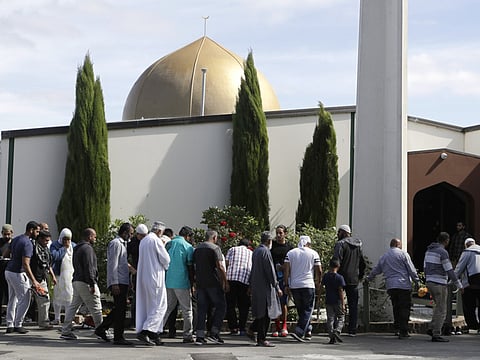New Zealand attack exposes flaws in fighting terrorism
Right-wing hostility and left’s apologist approach will cause more hatred towards Muslims

The recent, terrifying massacre at two mosques in New Zealand, in which at least 50 people died and many others were seriously injured — leaves us wondering whether we are living in an age of such hatred and anger that there is no hope for tolerance. The deadly assault has been attributed to various factors: bigotry, white supremacy, media propaganda against Muslims and even anti-Muslim Christian teaching.
Offering an insight into his motives, the shooter Brenton Tarrant, 28, posted a 73-page manifesto online before the attack. Tarrant describes himself as an “ordinary white man born in Australia to a working class, low-income family.” Although he was born in Australia he sees himself as European, highlighting his British and Irish heritage. “I want to show the invaders that our land will never be their land. Our homeland is our nation, and that as long as a white man survives, they will not be able to invade or replace our people... The attack in New Zealand will draw attention to the fact that our civilisation is attacked [sic].”
There is both bigotry and a belief in white supremacy in his manifesto but also a great deal of fear about Muslim dominance in Europe. “Immigrants [are] replacing European populations in their homelands with higher birth rates”, he writes, referring to them as invaders. He also says that the massacre is in retaliation for Muslims’ attacks in Europe.
It is evident that he resents not only Muslims but also politicians and officials in Europe, describing them as “traitors”, so his motives are not entirely based on religion.
It is an over-simplification to attribute Tarrant’s motives to bigotry, racism or white supremacy, and worse, this might cause further divisions between nations, eventually leading to more hatred.
This superficial view taken by Europeans to tackling terrorism has been flagged up by several Arab leaders. At the 2017 Misk Social Media Summit in Riyadh, the UAE’s Minister of Foreign Affairs and International Cooperation, Shaikh Abdullah Bin Zayed Al Nahyan, called on European countries to stop being “incubators of terror” and to address the issue. “The voices we hear calling for murder and shedding blood and stealing the wealth of people are in London, Germany, Spain and Italy. There will come a day when we see far more radicals, extremists and terrorists coming from Europe because of [a] lack of decision-making, and trying to be politically correct or assuming that they know the Middle East and know Islam and know the others far better than we do.”
The minister turned out to be right because in harbouring radical Islamists Europe also damaged the relations between Muslims and other European citizens, increasing the latter’s fear that Muslims would wipe out their civilisation.
The only way to combat terrorism is to move beyond the two dominant approaches taken by the Europeans and Americans. The first is the left-leaning position of being politically correct and apologetic for radical Islamism and the second is the right-wing viewpoint that lumps all Muslims together, Muslims and Islamists alike.
Apologist writers and senior officials in the West have even been encouraging Arab and Muslim countries to integrate radical Islamists such as the Muslim Brotherhood into politics. Dr Jamal Al Suwaidi, director-general of the Emirates Centre for Strategic Studies and Research (ECSSR), explained in his book, The Mirage, the dangerous consequences of extremist groups participating in politics. The whole world learnt the tragic lesson of giving political power to such groups when it accepted the democratic authority of the Nazis.
The real threat Islamists and sympathetic political religious groups pose, according to Dr Al Suwaidi, is their emphasis on the fundamental dichotomy between the West (the others) and their followers. These groups believe any form of interaction is an act of “westernisation” that seeks to pollute Islamic culture and society, an approach that is the polar opposite of the practices of ancient Islamic civilisation, when interaction with other civilisations was sought to share scientific knowledge, literature and ideas.
Western right-wing commentators are no less dangerous. The reductionist claims by the Australian Senator, Fraser Anning, over the New Zealand attack, suggested that Muslim immigration was to blame for the attack. Such comments fuel calls by radical political religious groups in Europe to become more insular and may generate further support for their causes.
The fight against terrorism will never succeed with political homophily. The right’s hostility and presumption of radicalism and the left’s apologist approach will only generate more hatred towards Muslims in the West. Partisan agreement is crucial in the fight against terrorism, as is listening to Muslim leaders and researchers.
Dr Najat AlSaied is an independent researcher based in the UAE.



